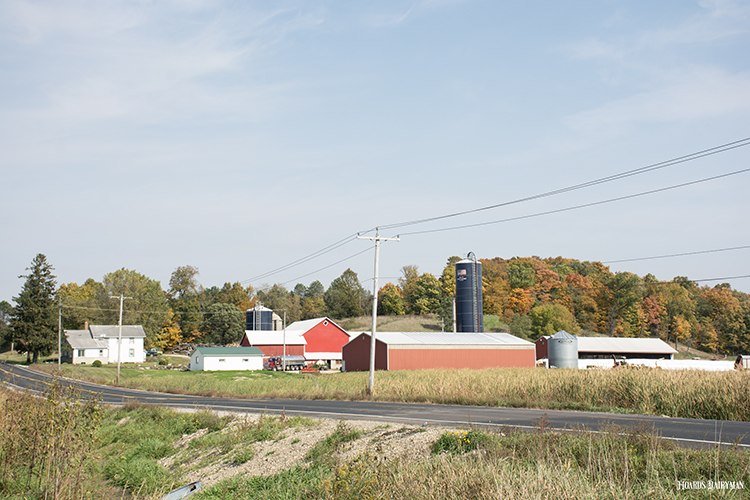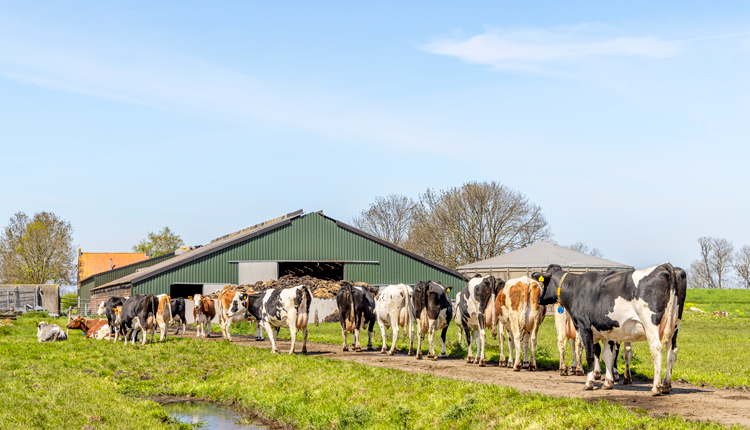 Research is the engine that drives a dairy farm’s economic possibilities in the ever-growing carbon credit marketplace. This research enhances the ability to sell manure-based products off the farm as an additional revenue stream.
Research is the engine that drives a dairy farm’s economic possibilities in the ever-growing carbon credit marketplace. This research enhances the ability to sell manure-based products off the farm as an additional revenue stream.However, a lack of quantifiable data and proof points lessens a farmer’s ability to monetize the many sustainable efforts that have been occurring across our nation’s dairies for generations. Our dairy checkoff’s environmental research team identifies research gaps and puts projects into motion with the end goal of proving U.S. dairies are environmental solutions while seeking technology opportunities for farmers that address challenges and offer economic returns.
The Dairy Soil and Water Regeneration (DSWR) project is one example that started in 2021. This DSWR project is a $23-million effort focused on improving soil health while exploring manure-based products that can create opportunities for markets, incentives, and investments in dairy sustainability.
We’re not aware of any previous research that looks this specifically and this in-depth at the environmental footprint of feed production practices on dairies. The most critical aspect is that this research is occurring on 10 dairy farms in four regions of the U.S. that account for about 80% of the nation’s milk production. The dairies include six commercial operations, three university-based farms, and a USDA research facility.
Feed production represents about 26% of a farm’s carbon footprint, and our work is monitoring changes in GHG emissions, soil carbon storage, and soil health through practices such as:
- No or minimal till farming
- Cover crops
- Innovative crop rotations
- Nutrient management
- Novel manure products and soil amendments
- Precision agriculture
- Water use efficiency
DSWR is largely supported by non-checkoff organizations, namely the Foundation for Food and Agriculture Research (FFAR), which awarded $10 million toward this work that is part of the U.S. Dairy Net Zero Initiative (NZI). Global entities Starbucks and Nestlé each contributed $10 million toward NZI, with some of that funding directed to DSWR. Remaining support comes from checkoff-founded Newtrient and Dairy Management Inc.
The work is overseen by the respected Soil Health Institute in conjunction with our checkoff scientists and researchers from Cornell University, University of California-Davis, Texas A&M AgriLife Research, University of Wisconsin-Madison, University of Wisconsin-Platteville, University of Vermont, and USDA’s Agricultural Research Service Northwest Irrigation and Soils Research in Kimberly, Idaho.
The collective research team has followed an approach that one size does not fit all. We know every dairy farm operates in a unique fashion and every region of the country presents its own climate, soil, and other distinctive characteristics. That’s why it’s critical DSWR has taken a broad sweep across the U.S. and involves differing farming styles to provide us with data that can translate to a variety of dairies.
While most of the work concludes in 2026, the results learned along the way will be shared broadly across the dairy community to provide scientific accuracy to support measurement of dairy’s GHG footprint for feed production. It also sets the stage for farmers to take advantage of carbon credit opportunities and to produce manure-based products as an alternative option to commercial or synthetic fertilizers. Finally, this research will keep U.S. dairy competitive in the global marketplace with foreign customers seeking proof that our products are produced in a way that is good for the planet.
DSWR is just one example of the exciting research projects the checkoff is working on. And while each one addresses a different aspect of dairy sustainability, they all share one common trait: environmental solutions must be good for the farmer.
To learn more about your national dairy checkoff, visit www.USDairy.com/forfarmers or to reach us directly, send an email to TalkToTheCheckoff@dairy.org.






